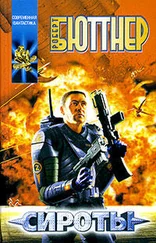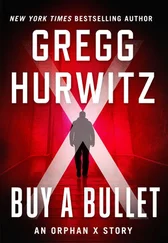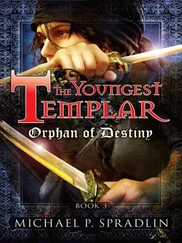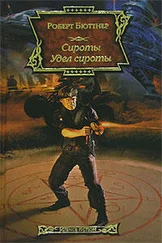Роберт Бюттнер - Orphan's Destiny
Здесь есть возможность читать онлайн «Роберт Бюттнер - Orphan's Destiny» весь текст электронной книги совершенно бесплатно (целиком полную версию без сокращений). В некоторых случаях можно слушать аудио, скачать через торрент в формате fb2 и присутствует краткое содержание. Жанр: Боевая фантастика, на английском языке. Описание произведения, (предисловие) а так же отзывы посетителей доступны на портале библиотеки ЛибКат.
- Название:Orphan's Destiny
- Автор:
- Жанр:
- Год:неизвестен
- ISBN:нет данных
- Рейтинг книги:3 / 5. Голосов: 1
-
Избранное:Добавить в избранное
- Отзывы:
-
Ваша оценка:
- 60
- 1
- 2
- 3
- 4
- 5
Orphan's Destiny: краткое содержание, описание и аннотация
Предлагаем к чтению аннотацию, описание, краткое содержание или предисловие (зависит от того, что написал сам автор книги «Orphan's Destiny»). Если вы не нашли необходимую информацию о книге — напишите в комментариях, мы постараемся отыскать её.
Orphan's Destiny — читать онлайн бесплатно полную книгу (весь текст) целиком
Ниже представлен текст книги, разбитый по страницам. Система сохранения места последней прочитанной страницы, позволяет с удобством читать онлайн бесплатно книгу «Orphan's Destiny», без необходимости каждый раз заново искать на чём Вы остановились. Поставьте закладку, и сможете в любой момент перейти на страницу, на которой закончили чтение.
Интервал:
Закладка:
“Shortcuts.”
He nodded. “A logical place for a shortcut is the point where something has tacked the folded temporal fabric together. Only something massively attractive can fold space and time and tack them together.”
“What’s strong enough to fold the universe?”
“When matter comes together, its gravity attracts more matter. The more matter collapses together, the more attractive the mass becomes. Consider the Sun’s mass compressed until it was no larger than a single electron.”
“A black hole.”
“So attractive that nothing, not even light, can escape.”
I stared ahead. “This spaceship falls into something smaller than a golf ball. It gets squashed so small that it’ll take an electron microscope to find what’s left of it.”
“Technically, you couldn’t find it with an electron microscope. It becomes packed so densely that light couldn’t escape to reflect back.”
“Whatever.”
“But for the Pseudocephalopod, that black hole is just a cosmic traffic circle. The ship whirls around it and gets slingshot out the other side.”
“The other side being.?”
“A long way from home.”
Howard leaned his elbows on his knees and cupped his chin in his upturned hands. “You know what I’d really like to know?”
“How any of this helps us blow this ship up?”
“Well, that. But what puzzled me until now was how the Pseudocephalopod overcame the paradox of relativity.”
“That one’s kept me awake for years.”
He sighed. “E equals MC squared. You do know that?”
“Okay.”
“As matter approaches the speed of light, time slows down relative to matter moving slower.”
“Sure. The space traveler returns home a year older but his twin has aged twenty years.”
He nodded. “Postulating a quick transit of the black hole, with rapid acceleration inward, followed by corresponding deceleration as the ship exits, because the hole tries to suck the ship back in. Time dilation would be insignificant except at velocities that would only be attained for a few minutes, measured in what would incorrectly be called absolute time. I’d guess an object would lose weeks or a year on a given transit, no more.”
“I thought that was your big puzzle?”
“That’s not the paradox that puzzles me. The Theory of Relativity also predicts that at relativistic speeds mass increases. Mass accelerated to the speed of light becomes infinite.”
“So, for a few minutes, this ship is as big as Jupiter, relative to the rest of the universe? But the Slugs don’t feel it? Then they shrink back?”
“Not exactly. It’s more that the amount of energy required to move the mass approaches infinity, you see?”
I didn’t. “So?”
“Other matter is being sucked in from the opposite side of the displacement at similar velocity. The collision odds of this ship hitting golf-ball-sized debris traveling through the emptiness of space are tiny. At additive speeds faster than light, in the constricted corridor this ship has to transit, the collision odds of two objects — that may have increased masses — are reversed.”
“Boom!”
“Big boom.”
“But we know the Slugs do it. They beat the odds, Howard. They must have radar or something.”
He shook his head. “Radar — all remote sensing — is based on something reflected back from, or at least something emanating out from, a detectable object. Nothing — not light, not radiation, nothing — reflects back or escapes from a black hole.”
“But Jeeb’s readouts tell you how the Slugs do it?”
Howard stared up at the ceiling and squinted. “Broadly speaking, yes. Ever swat a fly?”
“Sure. I miss them sometimes. They’re quick.”
“Insects, arachnids even more so, sense future events by means that laboratory experiments have been unable to link with sensory mechanisms tied to measurable physical phenomena.”
“Spiders have built-in crystal balls?”
“Precognition. Even if it’s measured in nanoseconds.”
“This is big news?”
“Coupled with what we learned about gravity propulsion, it could provide mankind with the key to interstellar travel. We could carry the battle to the Pseudocephalopod. Fight it at arm’s length.”
“One small obstacle to mankind flying to the stars, Howard. In a week mankind will be history.”
“Not if you just blow this ship to pieces.”
“If I could blow this ship to pieces, I would have done it already!”
Howard’s absentminded professor act amused me most of the time. Not now.
I pointed at Brumby, who rubbed his eyes, awakened by my yelling. “Brumby doesn’t even have enough fucking explosives to sink a rowboat! I sent Jeeb patrolling because we’re out of ideas, here. In twenty minutes of downloading, what have you done that can help us blow this ship to pieces?”
Howard paused, then tugged his lip. “Actually, nothing.”
“Goddammit, Howard. I hijacked a spaceship. I violated every oath an officer can take. I got another spaceship blown up because of my stupidity. Forty-six people died out here in space. I did all that because you said you could figure out how to blow this ship up. But after a fucking lifetime studying fucking extraterrestrials, the best you can tell me is we’re sitting on a fucking fertilizer mountain?” I leaned against the Slug metal bulkhead, arms extended, head down, like I could push the bulkhead away with my palms, and let my anger drain away.
Brumby cleared sleep from his throat. “Fertilizer, sir? Would that be ammonium nitrate?”
I sighed and pointed at Howard. “That’s what he told me, Brumby.”
Howard smacked his forehead. “Of course!”
FORTY-SIX
HOWARD JUMPED UP AND DANCED, arms waving over his head.
Brumby blinked furiously. “Oh, baby!”
My outburst had driven them around the bend, too.
I turned and faced them. “What?”
Howard grinned. “N-H-Four, N-O-Three!”
“Brumby? In English?”
“Ammonium nitrate makes bombs.”
“Real bombs?”
Howard stopped dancing. “In 1947 a ship cargo of ammonium nitrate fertilizer caught fire. The explosion and tidal wave destroyed the port of Texas City and broke windows in Galveston, ten miles away. It raised a mushroom cloud a half mile high. The ship’s anchor weighed a ton and a half. It buried itself ten feet in the ground two miles away.”
Brumby said, “You mix it with diesel oil.”
“Brumby, I don’t think starships carry diesel oil.”
“It doesn’t have to be mixed. It’s stable against impact. You can hit it with a hammer, even shoot it. But heat it above its slow-decomposition point, 393 degrees Fahrenheit”—Brumby raised his arms like a symphony conductor—“and up she goes.”
“How big a bomb can you make with this stuff?”
“How much ammonium nitrate you got, sir? Texas City was twenty-three hundred tons.”
Hair rose on my neck. And my forearms and everywhere else.
“What do we have to do?”
Brumby reached for a Thermite stick. “Thermite burns at over two thousand degrees. Stuff Thermite all through the fertilizer pile, at intervals. Light the high-temp fusing. Run like hell.”
I rubbed my chin. “How long can the fuse be?”
Brumby picked up the det-cord reel and peeled off lengths he measured by arm spans, like a tailor. Then he counted the Thermite sticks. “Allowing for some fuses to be longer since you gotta light them first, then run and light the others, ten minutes, tops.”
I frowned. “It took me almost an hour to climb out of that pit.”
Brumby pointed at Jeeb. “Let the ’bot do the work, sir. He can fly away.”
Millions of Jeeb’s mass-market cousins had been vacuuming floors, pruning shrubs, and painting walls since the turn of the century. Jeeb could fly like an eagle, crack codes, translate every known human dialect in real time, and track every soldier in an infantry division, but his current appendages and programming were adapted for locomotion, self-maintenance, sensing, and data assimilation. I shook my head. “Jeeb can’t even light a match, Brumby. Much less dig holes and plant bombs.”
Читать дальшеИнтервал:
Закладка:
Похожие книги на «Orphan's Destiny»
Представляем Вашему вниманию похожие книги на «Orphan's Destiny» списком для выбора. Мы отобрали схожую по названию и смыслу литературу в надежде предоставить читателям больше вариантов отыскать новые, интересные, ещё непрочитанные произведения.
Обсуждение, отзывы о книге «Orphan's Destiny» и просто собственные мнения читателей. Оставьте ваши комментарии, напишите, что Вы думаете о произведении, его смысле или главных героях. Укажите что конкретно понравилось, а что нет, и почему Вы так считаете.







![Дэн Бюттнер - Где живет счастье [Правила жизни самых счастливых людей планеты] [litres]](/books/395574/den-byuttner-gde-zhivet-schaste-pravila-zhizni-samyh-thumb.webp)



